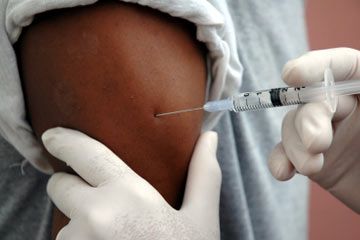Smart for Life is a diet that appears to fly in the face of the axiom: "If something sounds too good to be true, it probably is." After all, the program's tag line is, "Eat Cookies. Lose Weight. It's that Simple." What could be better?
But these are no ordinary cookies. The program's foundation is similar to many other diet plans that require participants to purchase proprietary, pre-packaged foods. In this case, it's a cookie -- marketed as "all-natural" and "appetite suppressing" -- that replaces normal meals. The program has since added a little variety, including branded shakes, muffins, soups and desserts.
Advertisement
Founded by Dr. Sasson Moulavi, a former colleague of Dr. Sanford Siegal (of Dr. Siegel's Cookie Diet), the Smart for Life plan follows a tried-and-true formula: You must burn more calories than you consume. And with just 1,100 calories budgeted for daily intake, the program almost guarantees that participants will lose weight if they stick to the plan.
The basic premise is to "re-program" your metabolism, relying on the benefits of smaller portions -- known as mini-meals -- throughout the day to help suppress hunger pangs. The eating program calls for seven balanced meals over the course of the day, which are intended to continuously keep your metabolism in a fat-burning mode. However, you can say goodbye to breakfast, lunch and snacks.
Six of those meals are Smart for Life cookies (or a similar product). The cookies are made up of a proprietary blend of amino acids, complex carbohydrates, fiber and natural sugars designed to suppress hunger cravings while providing the proper nutrition everybody needs. There's even a gluten-free Banana Chocolate Chip Granola Square for those who can't tolerate the protein gluten.
The seventh meal is a single low-fat, high-protein dinner of chicken or fish, accompanied by an average of five cups of fresh vegetables (steamed or raw), resulting in a daily caloric total of between 800 and 1,100 calories, and the promise of no hunger pangs -- a sure-fire formula for weight loss. However, that's a very low caloric intake -- one of the criticisms we'll address later in the article.
The program is broken into two distinct sections -- a "diet" phase and a "maintenance" phase. The key to the "diet" phase is a comprehensive medical and dietary evaluation performed at a Smart for Life clinic (established in eight states and Quebec, Canada). We'll discuss that next.
Advertisement


